Google Pixel 8a Review: The Pixel 8 killer
We may earn a commission if you make a purchase from the links on this page.

Google Pixel 8a Intro
Even since Google introduced the first Pixel A-series model back in 2019, the line has become the go-to option for those who want a budget phone with all the software bells and whistles Google has to offer.
The series has enjoyed tremendous success to this day, and this holds true for the newly launched Pixel 8a. The phone landed on May 7th, after a surprising early move by Google, and it's poised to give all midrangers a serious run for their money.
This phone has a lot going on for it. From the 120Hz screen and the last generation Tensor G3 chipset to Google's almighty Gemini AI available at a press of a button. Some might even say that Google shot itself in the leg with the Pixel 8a, making the regular Pixel 8 a tough sell. Well, it's time to find out!
The series has enjoyed tremendous success to this day, and this holds true for the newly launched Pixel 8a. The phone landed on May 7th, after a surprising early move by Google, and it's poised to give all midrangers a serious run for their money.
UPDATE: The Pixel 9a is about to drop, so we're going to get another Pixel A-series device and it's shaping out to be another winner. Stay tuned for the Pixel 9a review, and be sure to check out all of the comparisons, featuring the new phone, including a detailed battle with the predecessor - the Pixel 8a.
Disclaimer: We have a brand new PhoneArena Review Rating system and because of the more demanding criteria of that benchmark, overall review ratings are now lower. That does not mean there are surprising new shortcoming of phones we review, but it is just the way this new rating works. We believe that it gives readers a much better idea of how phones compare to others in the same price class, so make sure to always look at the scores in the context of the averages. You can learn more about our new review scoring system here.
Table of Contents:
- Specs
- Design and Display
- Camera
- Performance
- Software
- Battery and Charging
- Audio Quality and Haptics
- Should you buy it?
Also read:
- Google Pixel 8a vs Samsung Galaxy S23 FE
- Google Pixel 8a vs Pixel 8
- Google Pixel 8a vs Pixel 7a
- Google Pixel 8a vs iPhone 15: Has the iPhone found its budget nemesis?
- Google Pixel 9a preview: the best candidate for your $500?
Google Pixel 8a Specs
AI magic for the masses
Let's start with an overview of the Google Pixel 8a specs:
| Specs | Google Pixel 8a |
|---|---|
| Size and Weight | 152.1 x 72.2 x 8.9mm |
| Display | 6.1-inch FHD+ OLED, 120Hz |
| Processor | Tensor G3 |
| Software | Android 14 |
| Cameras | 64MP OIS main 13MP ultrawide 13MP front |
| Battery Size | 4,492 mAh |
| Charging Speeds | 18W wired charging 7.5W wireless |
| Prices | 8/128GB for $499 |
Google Pixel 8a Design and Display
Not bezel-less, no sir
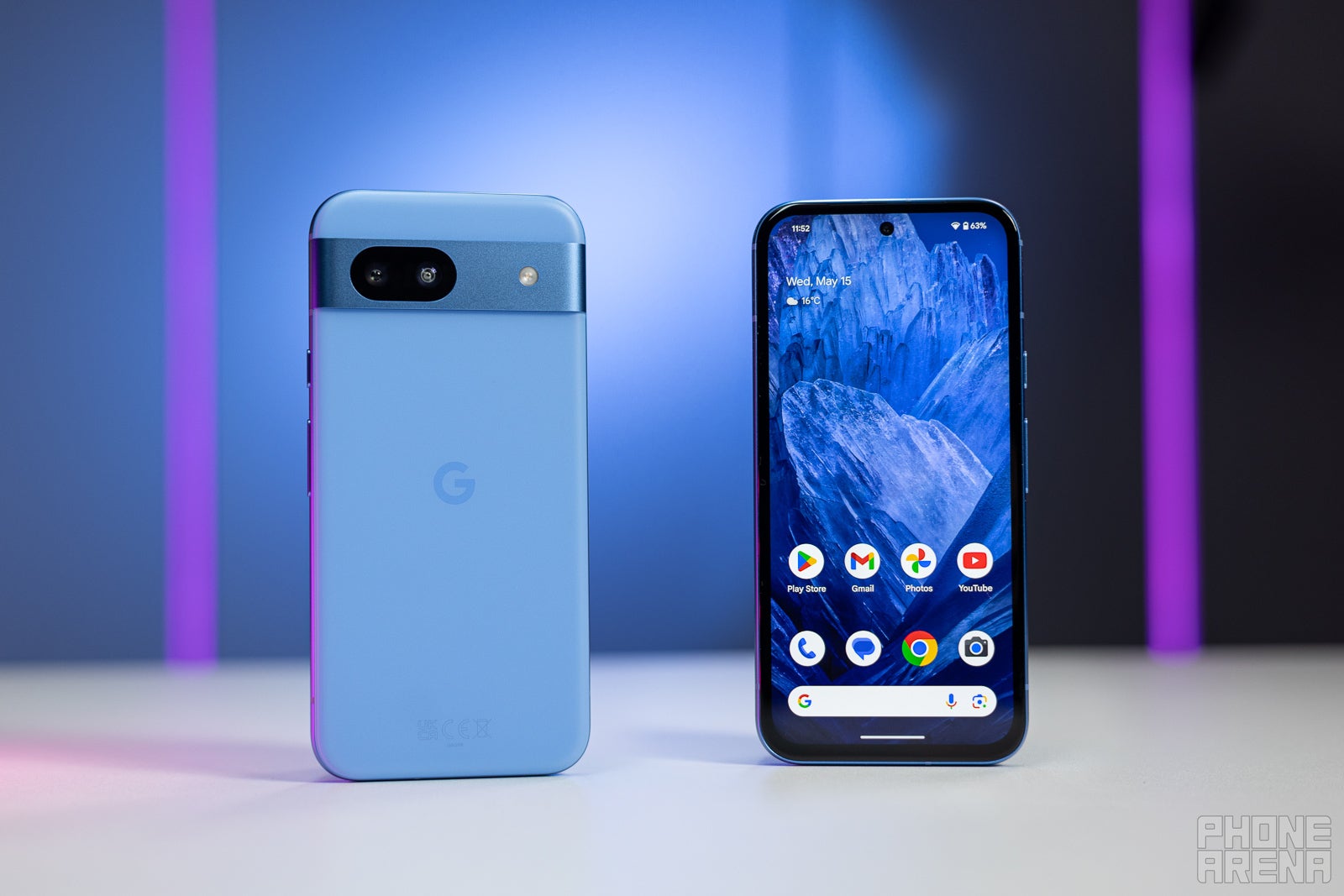
The Bay color variant of the Pixel 8a reminds me of a summer blue sky—not a single cloud in sight
Right off the bat, we start with the obvious drawback of this phone. There are huge bezels around the screen, and when you turn the phone on, it's like looking back in time. Not that the Pixel 8a looks bad or something.
Actually, the Bay color variant looks very fresh and poppy; I wouldn't mind this color on more gadgets. The phone feels very rounded. The frame of the Pixel 8a is not flat; it has a radius, and there's also a slight curvature on the back glass.
Overall, the phone feels great in the hand, with the small exception that you can feel the part where the frame meets the back glass. Speaking of the back glass, it has a nice, matte finish with a papery feel when you run your fingers over it. It also fends off fingerprints really well.
As far as design goes, the Pixel 8a follows the Camera Bar route. The bar itself is aluminum, just like the frame, and it houses the pill-shaped dual camera system plus the LED flash. There's a discreet G on the back, and just two buttons on the right side of the frame: a power button and the volume rocker.
As far as colors are concerned, the phone is available in Bay (light blue), Aloe (light green), Obsidian (black), and Porcelain (beige), and they all look very hip, especially the green version that will further make the Pixel 8a pop out in the crowd.
Actually, the Bay color variant looks very fresh and poppy; I wouldn't mind this color on more gadgets. The phone feels very rounded. The frame of the Pixel 8a is not flat; it has a radius, and there's also a slight curvature on the back glass.
As far as design goes, the Pixel 8a follows the Camera Bar route. The bar itself is aluminum, just like the frame, and it houses the pill-shaped dual camera system plus the LED flash. There's a discreet G on the back, and just two buttons on the right side of the frame: a power button and the volume rocker.
As far as colors are concerned, the phone is available in Bay (light blue), Aloe (light green), Obsidian (black), and Porcelain (beige), and they all look very hip, especially the green version that will further make the Pixel 8a pop out in the crowd.
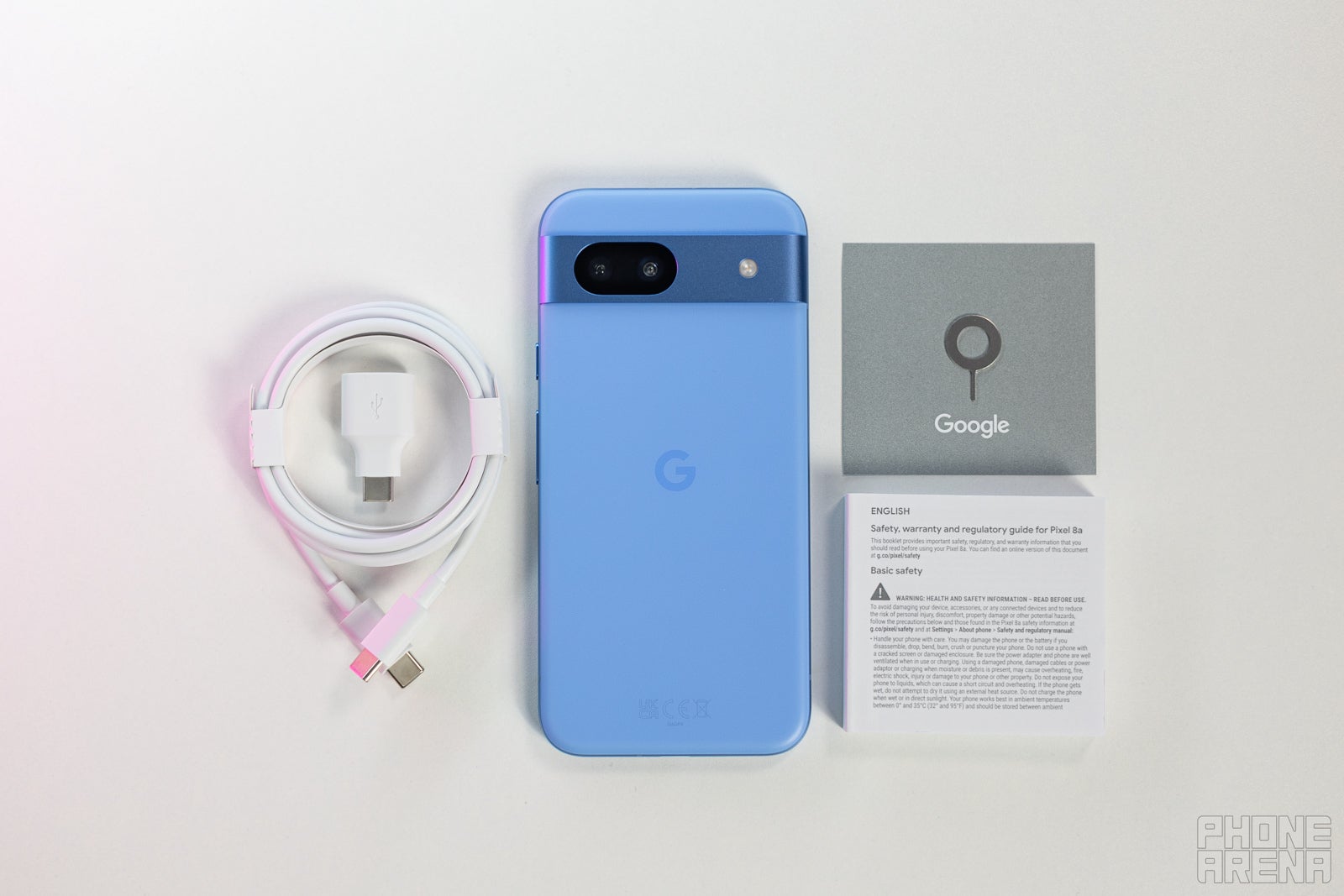
The retail box is a standard affair, at least there's a cable
Most smartphone companies have gone super eco-friendly, removing almost everything from smartphone retail boxes. Sony, for instance, leaves you with just the device in a cardboard box—no cable, no charger, nothing extra.
Google seems to be a bit more generous here; the retail box of the Pixel 8a includes a USB-C cable and an OTG adapter (pretty handy).
Google seems to be a bit more generous here; the retail box of the Pixel 8a includes a USB-C cable and an OTG adapter (pretty handy).
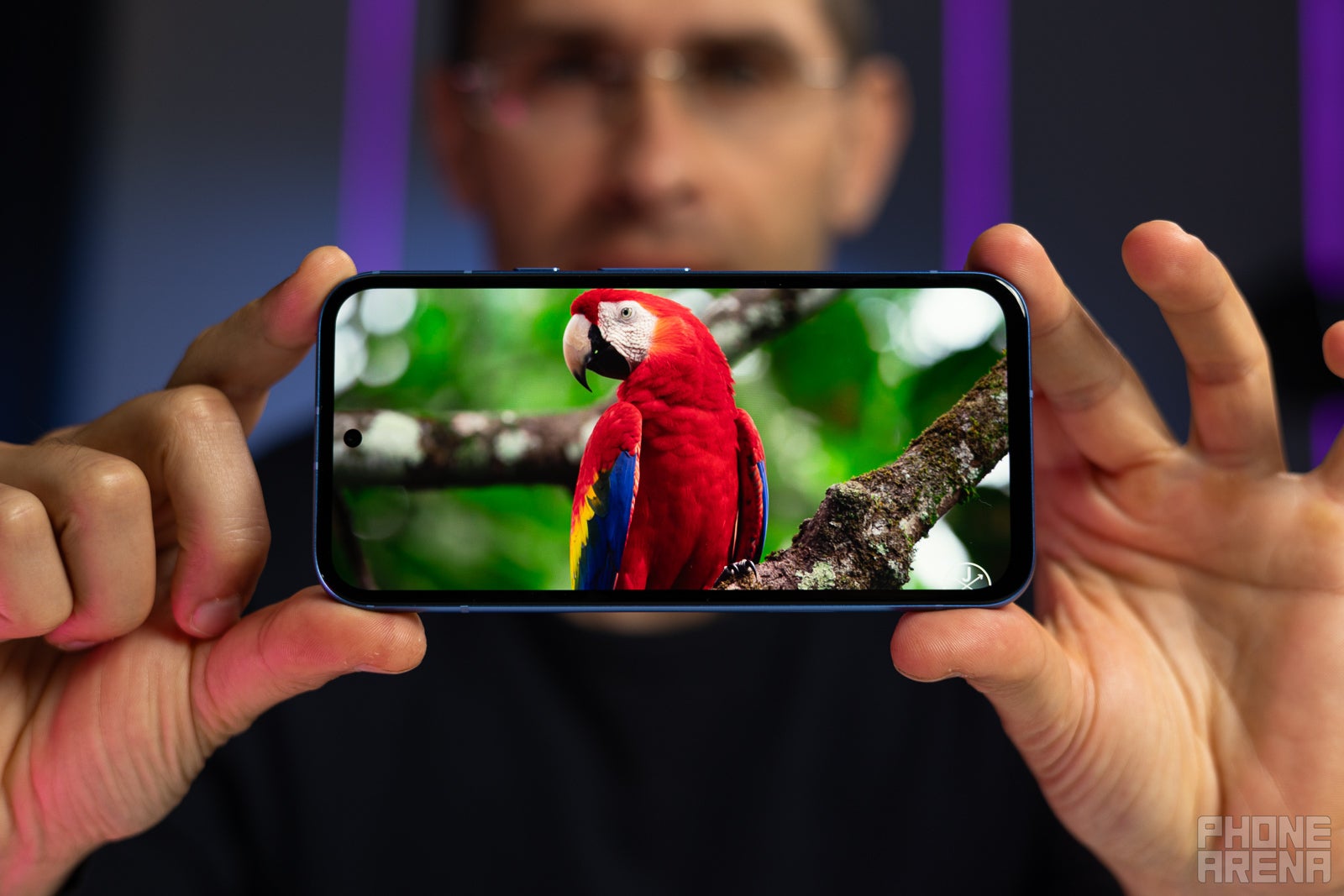
The bezel around the screen is almost as big as the front camera cutout
Time to check out the bezel-heavy display (seriously, it's a 3.5mm bezel with a half-centimeter chin). Well, what do you know. Despite the bezel situation, the display is actually really good. It's a 6.1-inch OLED with a FHD+ resolution (2400 x 1080 pixels), which translates to around 431 PPI, pretty decent for a midranger.
The display is a 120Hz panel and can switch automatically between 60Hz and 120Hz. One thing worth mentioning is that you can't force 120Hz on the Pixel 8a all the time. There's a Smooth Display option that, when toggled, lets the phone choose when to bump up the screen refresh rate to 120Hz, and when to keep it at 60Hz.
The display is a 120Hz panel and can switch automatically between 60Hz and 120Hz. One thing worth mentioning is that you can't force 120Hz on the Pixel 8a all the time. There's a Smooth Display option that, when toggled, lets the phone choose when to bump up the screen refresh rate to 120Hz, and when to keep it at 60Hz.
When it comes to display tests, the Pixel 8a comes on top of all its direct competitors, including the regular Pixel 8. The screen is very bright; we measured almost 1,500 nits; the color accuracy is great; and the minimum brightness is also excellent. Overall, with the Pixel 8a, you're getting a flagship-grade screen in a midrange-priced phone. Minus the huge bezels, of course.
Let's add a few words on biometrics here. The under-display fingerprint scanner is actually pretty fast and accurate. Google had some gremlins under the hood of some Pixel phones in the past, but they've been taken care of. The facial recognition also works pretty fast and consistently.
Google Pixel 8a Camera
It's all in the algorithms
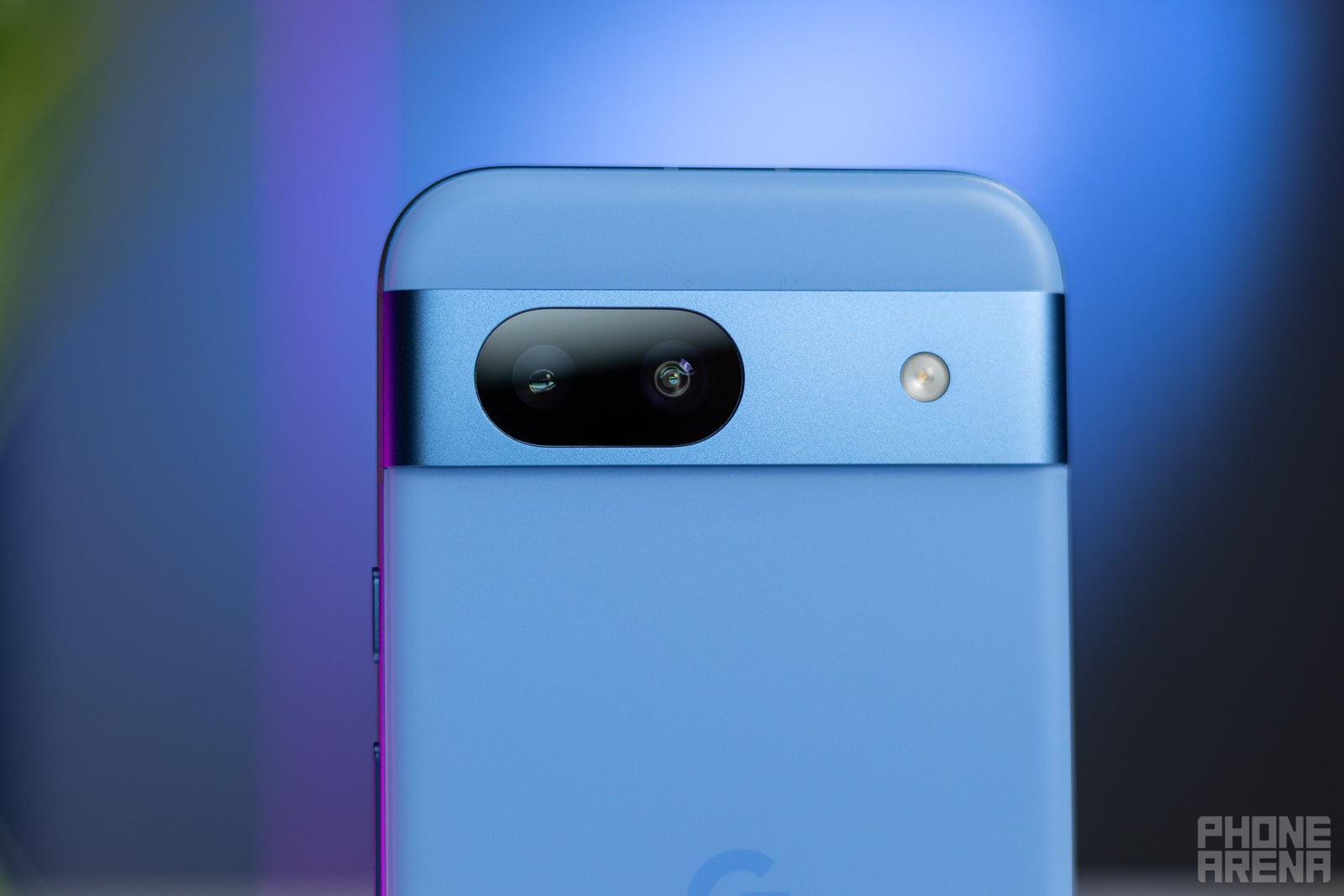
The hardware is the same as last year, but the algorithms are different!
Our composite camera score takes into account various key aspects of the Pixel 8a camera's performance, such as exposure, focus, color reproduction, zoom quality, etc. Looking at the score above, it's clear to see that the Pixel 8a has a pretty decent main camera and ultrawide camera, but it's let down by the lack of a dedicated zoom lens.
The Pixel 8a features the same camera system as its predecessor, namely a 64 MP main camera with OIS and f/1.89 aperture, coupled with a 13 MP ultrawide. This might disappoint some people, but don't forget how strong and advanced Google is when it comes to image processing algorithms.
The selfie camera has also been carried over from the last model—it's a 13 MP, f/2.2, 20mm equivalent ultrawide snapper. On the software side of things, some of the features that are now available on the Pixel 8a are: Top Shot, Magic Editor, and Audio Magic Eraser, along with other tried and tested tools such as Magic Eraser, Night Sight, and Photo Unblur. The Pixel 8a doesn't feature a telephoto camera, but again, thanks to the clever software, we have Super Res zoom with up to 8x magnification.
The shots from the main camera look pretty decent. I took the time to put them side-by-side with samples from the Pixel 7a and Pixel 8. The Pixel 8a definitely produces better images than its predecessor, and in good lighting conditions, the samples are comparable to those shot with the regular Pixel 8.
The overall quality is very good across different scenarios. Portrait shots are pretty convincing, and ultrawide shots are also decent, although they don't seem to have the same detail as the samples from the main camera.
The overall quality is very good across different scenarios. Portrait shots are pretty convincing, and ultrawide shots are also decent, although they don't seem to have the same detail as the samples from the main camera.
Video Quality

Compared to the Pixel 7a, the new model definitely does a better job on the video front. The image is more detailed with better colors, and the exposure is much better on the Pixel 8a. Image stabilization is also much better on the Pixel 8a, especially at high magnification.
Google Pixel 8a Performance & Benchmarks
Third generation Tensor
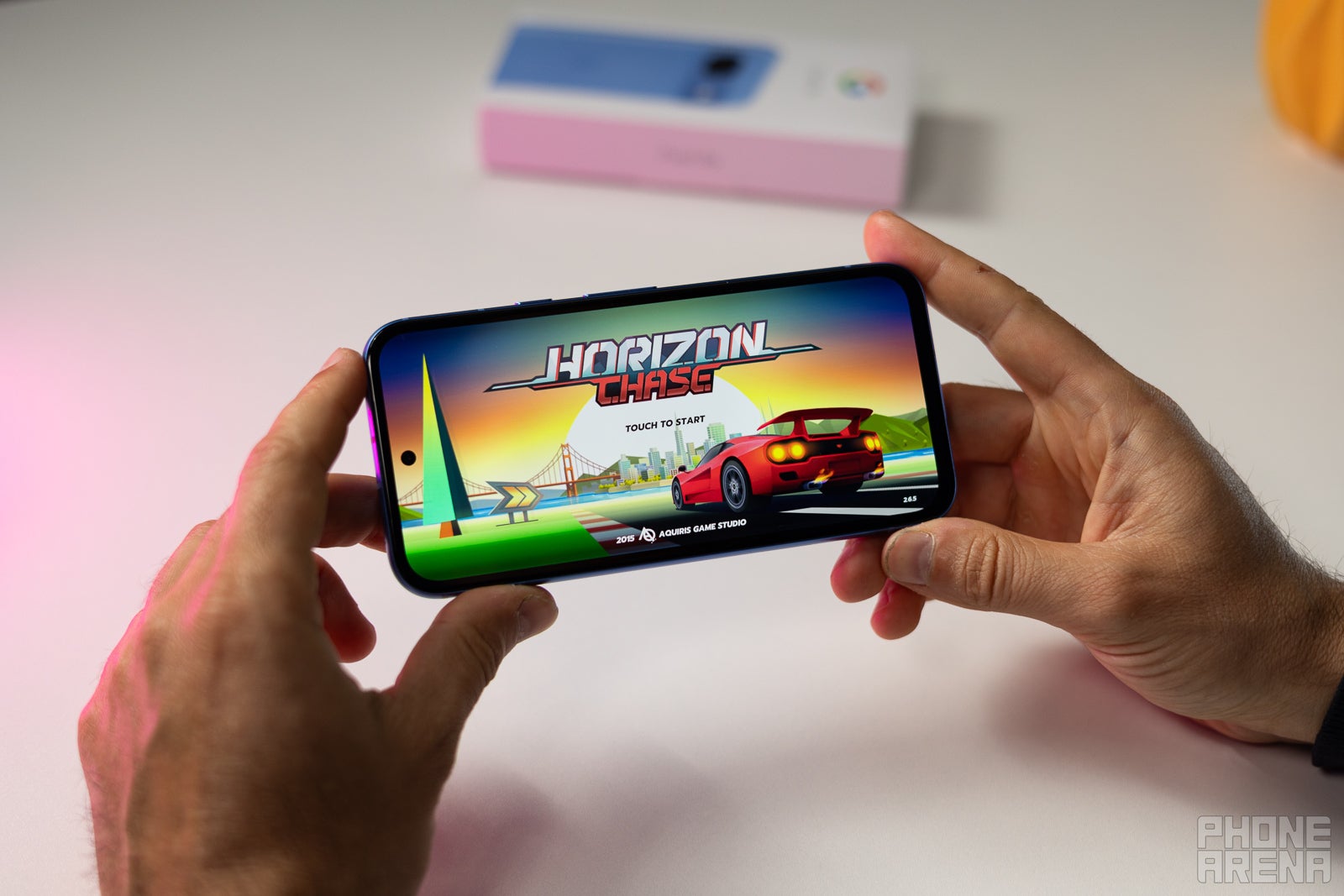
Pixel 8-like performance for much less money
Google slaps its latest in-house developed chipsets inside the Pixel A-series (which is understandable), hence the Pixel 8a comes with a third-generation Tensor G3 chip onboard. In 2024, 8GB of RAM might seem like not that much, but the Pixel 8a manages a smooth experience, and I couldn't find a huge difference compared to the flagship Pixel 8 model.
There's a slight hesitation when you cold-open an app, but then again, I've observed the same behavior on the Pixel 8. Overall, the Tensor G3 is still a bit off compared to Qualcomm's and Apple's top silicon, but in normal day-to-day use, you probably won't feel much of a difference.
The synthetic benchmarks corroborate the above. As a flagship chipset, the Tensor G3 is a bit underwhelming. But when put into a midrange phone, this silicon starts to shine against its competitors. The Pixel 8a manages some of the best scores in this price bracket and, unsurprisingly, mirrors the performance scores of its more expensive sibling.
Performance Benchmarks:
The synthetic benchmarks corroborate the above. As a flagship chipset, the Tensor G3 is a bit underwhelming. But when put into a midrange phone, this silicon starts to shine against its competitors. The Pixel 8a manages some of the best scores in this price bracket and, unsurprisingly, mirrors the performance scores of its more expensive sibling.
Google Pixel 8a Software
Gemini-infused Google Assistant
This is where things get really interesting. The smartphone world is heavy on AI these days; it's all the rage. All big companies are trying to implement AI in some shape or form, and Google is no exception. Gemini is onboard, and it's somewhat interconnected with Google Assistant.
When you long-press the power button, the Pixel 8a wakes up Gemini. You can type, use your voice to talk to the Large Language Model, or upload a picture and show it to the AI. What's interesting is that Gemini also wakes up when you say "Hey, Google" or "Ok, Google," and if it can't accomplish the task given, it automatically hands it over to Google Assistant.
For all intents and purposes, these two look and feel like the same thing. If you ask the phone to set an alarm or call someone, it will use Google Assistant to do so. But if you just ask a question, the phone will use Gemini.
Gemini can't control apps directly (yet), and it can't transcribe and translate in real time; you need to use Google Translate for that. As of now, Gemini is not fully integrated with Google's own ecosystem of apps, but it's definitely coming in a Feature Drop or two. I can see Gemini doing things like composing and sending emails, texting people, transcribing meetings, controlling your smart home appliances, and so on.
The Pixel 8a comes with seven years of major OS updates, Feature drops, and security patches, so the phone will be supported until 2031. Which is crazy if you think about it, especially if you compare it to flagship phones that cost three times as much, and offer just three of four years of software support.
When you long-press the power button, the Pixel 8a wakes up Gemini. You can type, use your voice to talk to the Large Language Model, or upload a picture and show it to the AI. What's interesting is that Gemini also wakes up when you say "Hey, Google" or "Ok, Google," and if it can't accomplish the task given, it automatically hands it over to Google Assistant.
For all intents and purposes, these two look and feel like the same thing. If you ask the phone to set an alarm or call someone, it will use Google Assistant to do so. But if you just ask a question, the phone will use Gemini.
Gemini can't control apps directly (yet), and it can't transcribe and translate in real time; you need to use Google Translate for that. As of now, Gemini is not fully integrated with Google's own ecosystem of apps, but it's definitely coming in a Feature Drop or two. I can see Gemini doing things like composing and sending emails, texting people, transcribing meetings, controlling your smart home appliances, and so on.
The Pixel 8a comes with seven years of major OS updates, Feature drops, and security patches, so the phone will be supported until 2031. Which is crazy if you think about it, especially if you compare it to flagship phones that cost three times as much, and offer just three of four years of software support.
Google Pixel 8a Battery
A full-day phone
The Pixel 8a features a 4,492 mAh battery, a clear upgrade compared to its predecessor. Funnily enough, in our battery tests, the Pixel 7a managed better results in web browsing and video streaming, while the Pixel 8a won the gaming battle (beating the Pixel 8 as well).
UPDATE: We've retested the Pixels after one major OS update and the results are now in favor of the Pixel 8. The battery life of Pixel devices has always been very dependent on software updates governing how the Tensor operates.
PhoneArena Battery Test Results:
Charging is where things get problematic. The Pixel 8a comes with the same 18W wired charging (I can't use the word "fast" next to this kind of wattage) as its predecessor, and in 2024 it feels rather slow. I kinda hoped for Pixel 8 charging speeds, at least, but no cigar. The phone takes almost two hours to charge from 0 to 100%.
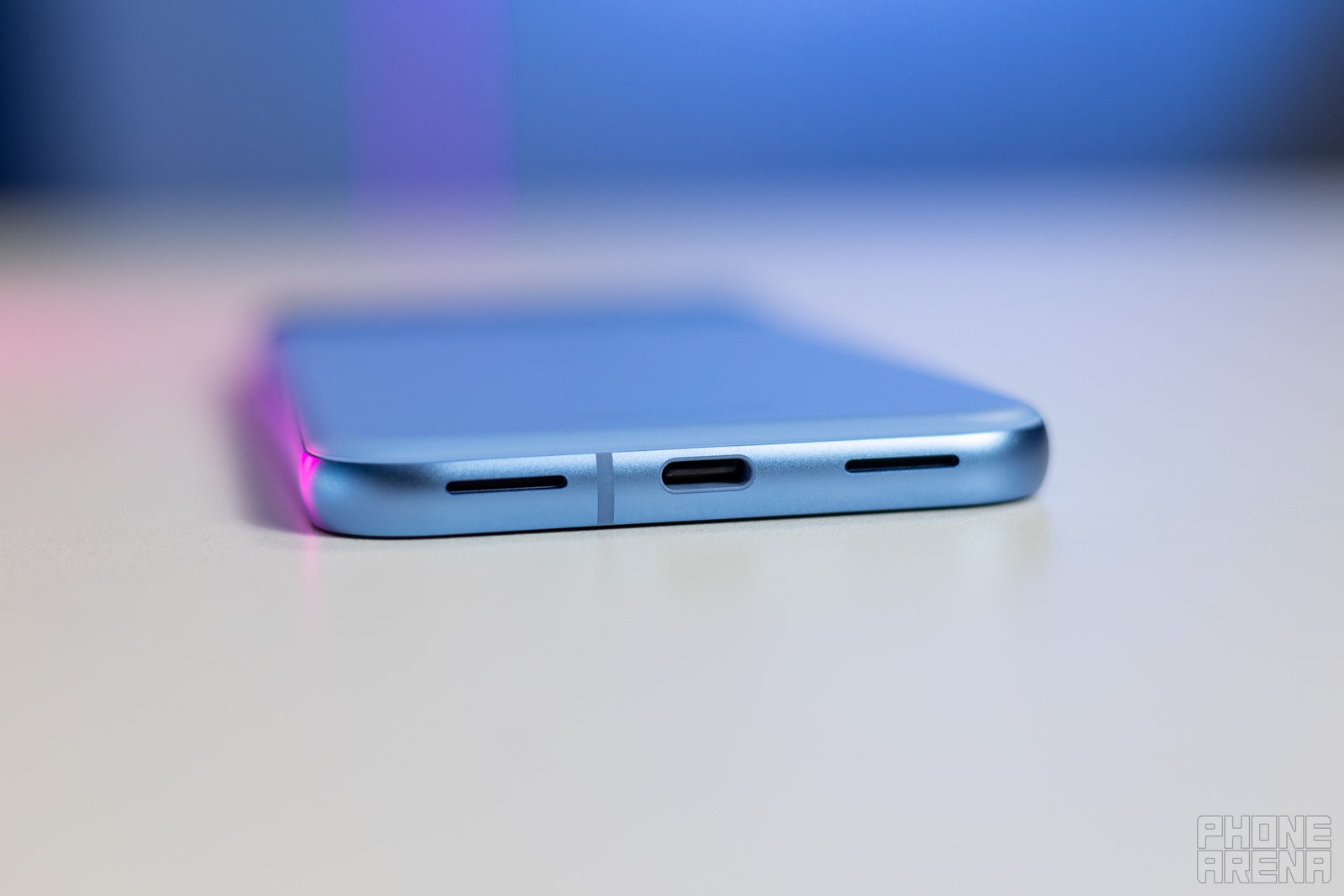
The USB-C port on the Pixel 8a; untapped potential...
PhoneArena Charging Test Results:
Google Pixel 8a Audio Quality and Haptics
There's the usual stereo speaker setup found on the Pixel 8a, where the earpiece doubles as a second speaker, while there's a bigger bottom-firing loudspeaker doing the heavy lifting. I found the Pixel 8a to be pretty loud, but at max volume it can be harsh-sounding with some pretty noticeable distortion in the high frequency range.
The haptics are fine, but nothing to write home about. I think the Pixel 8 does a better job at producing tight and precise vibration. For what it's worth, the haptic feedback is very similar to what we have in the Pixel 7a. Finally, there's no 3.5 mm audio jack, so you'll have to rely on wireless connectivity or use an adapter if you want to plug in your wired headphones.
Should you buy it?
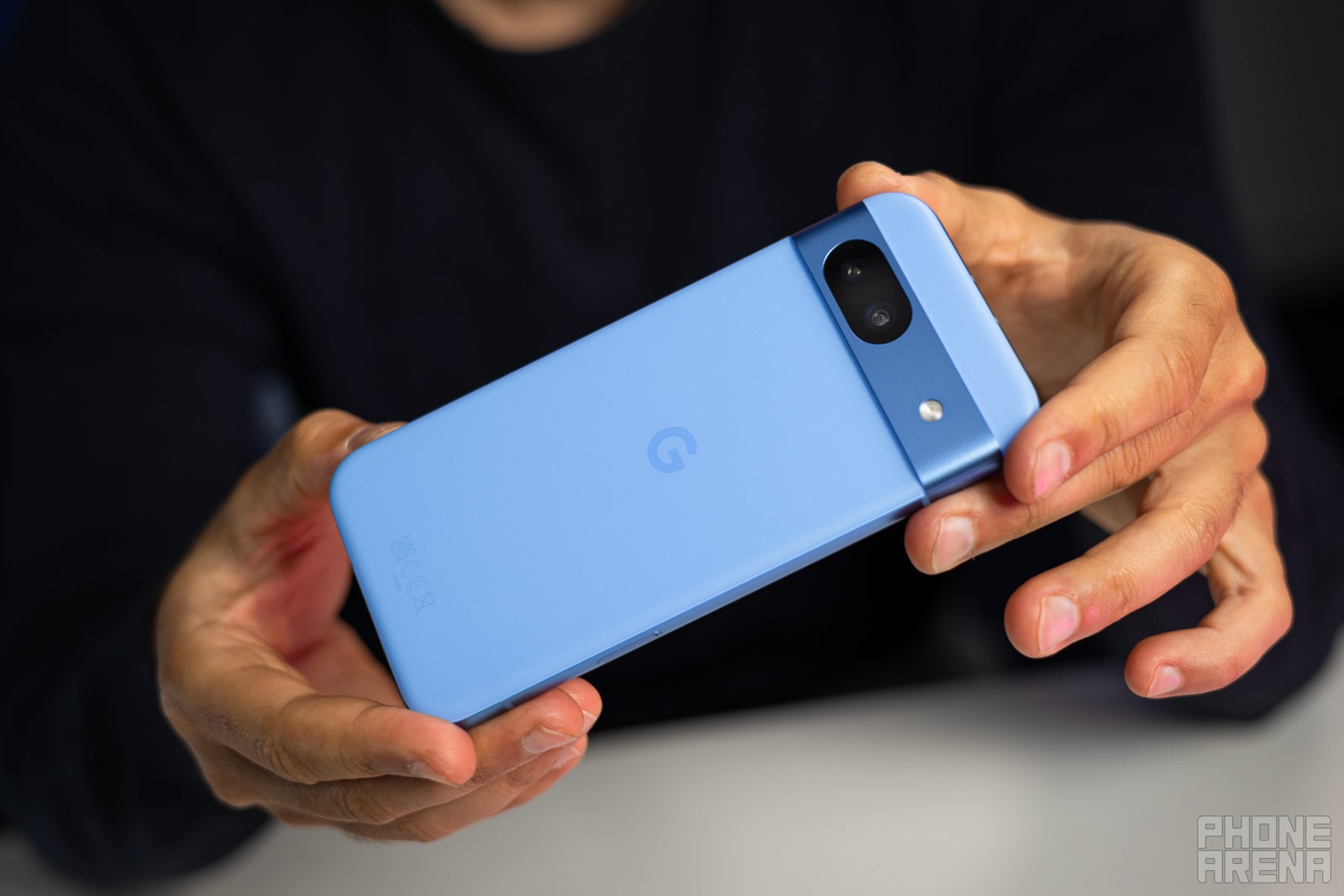
We present you the Pixel 8 killer!
The ultimate question! Google is committed to this tick-tock cycle where we get a midrange A-series phone every spring and a flagship duo in autumn. I'm not sure I can justify the existence of either the Pixel 8a or the Pixel 8 anymore. These two are so close that the $499 Pixel 8a immediately makes the $699 flagship obsolete, if you're shopping for Pixels right now.
Now, taken out of this specific context, the Pixel 8a is a great midrange phone and a great bang for your buck. If you're looking for software longevity coupled with some great flagship-grade specs, it's a no-brainer. At $499, you can't go wrong with it, and as we all know, Pixel phones get better with each Feature drop. And there are plenty of those to come.
On the other side of the "pros-cons" spectrum, there are some things that you should know, accept, and prepare to live with if you do buy this phone. You're going to look at those bezels all day, every day, so if it bothers you, walk away. They won't disappear with time.
Now, taken out of this specific context, the Pixel 8a is a great midrange phone and a great bang for your buck. If you're looking for software longevity coupled with some great flagship-grade specs, it's a no-brainer. At $499, you can't go wrong with it, and as we all know, Pixel phones get better with each Feature drop. And there are plenty of those to come.
The charging is painfully slow, so better adjust your habits to charge overnight. And finally, if you find the Pixel 8 on a deal an the price is within $50 above the Pixel 8a's price, by all means go for the regular Pixel 8.
That being said, the Pixel 8a offers a robust and future-proof software experience with many AI tricks yet to come, a great screen, and a quite decent main camera. And all that at a very competitive price. One thing you should bear in mind is that the Pixel 9a is right around the corner. If you want the latest Tensor G4 chipset, a new design, and the latest AI tricks, it might be better to hold your horses for now.
That being said, the Pixel 8a offers a robust and future-proof software experience with many AI tricks yet to come, a great screen, and a quite decent main camera. And all that at a very competitive price. One thing you should bear in mind is that the Pixel 9a is right around the corner. If you want the latest Tensor G4 chipset, a new design, and the latest AI tricks, it might be better to hold your horses for now.
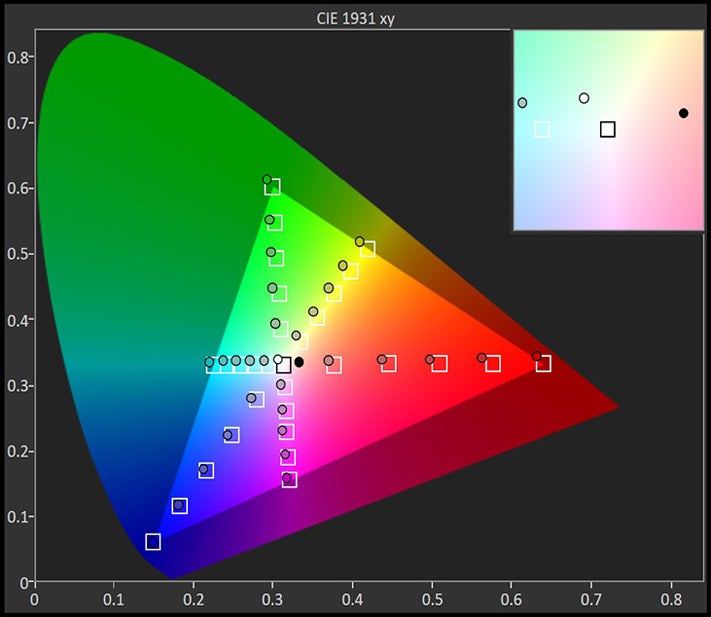
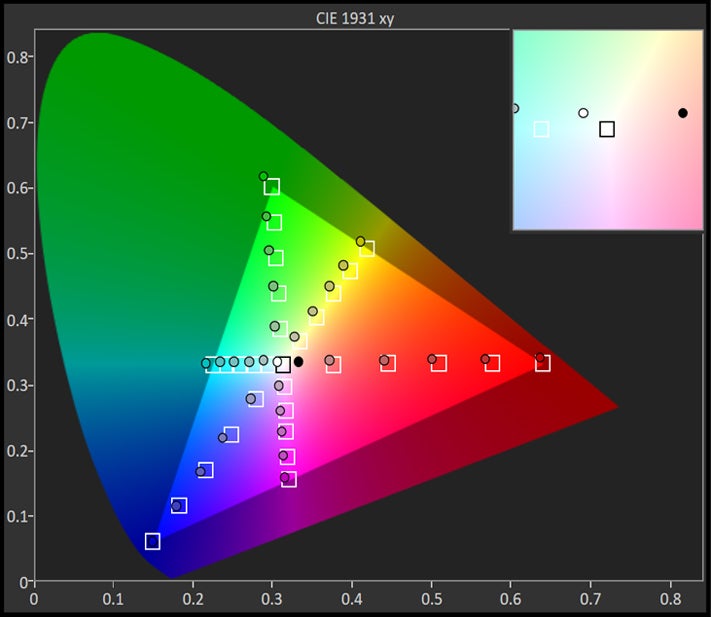
















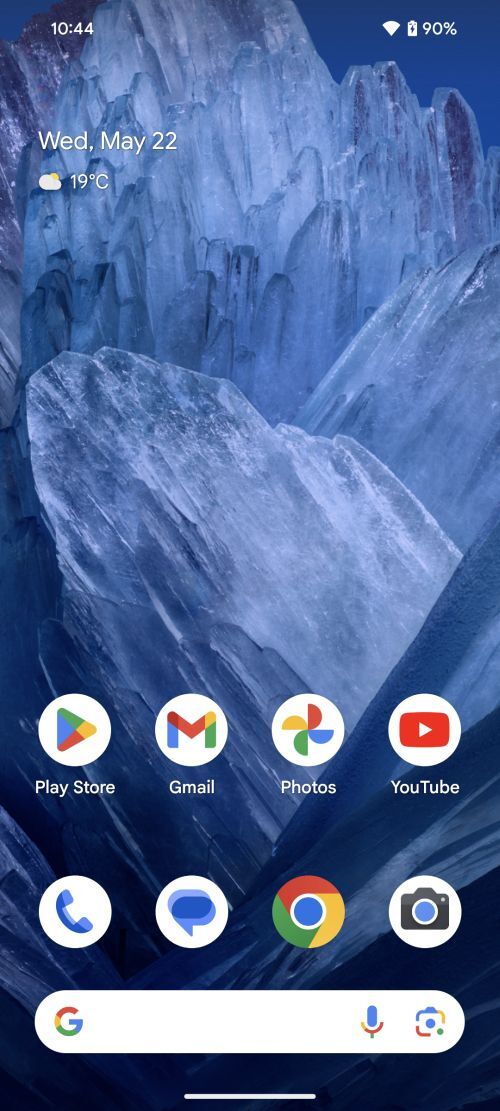
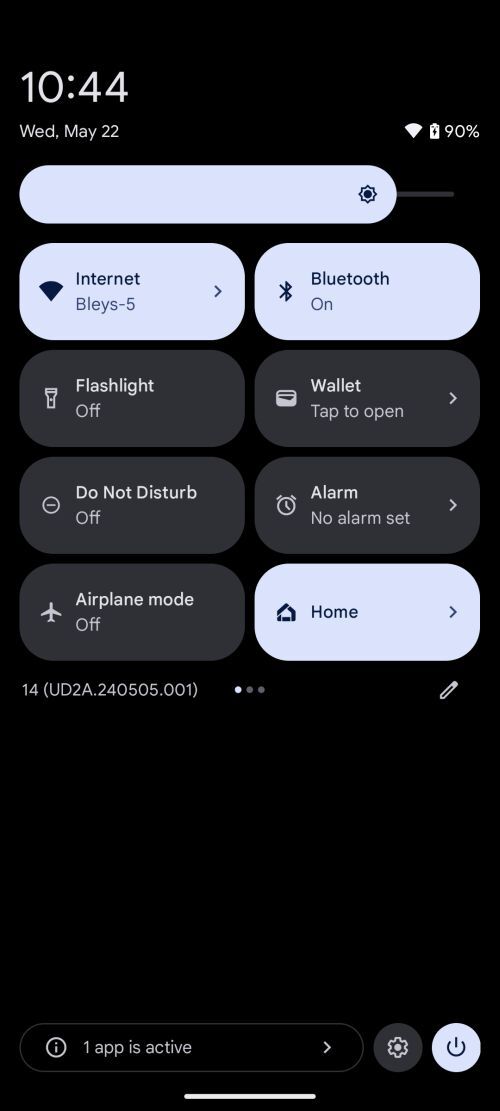
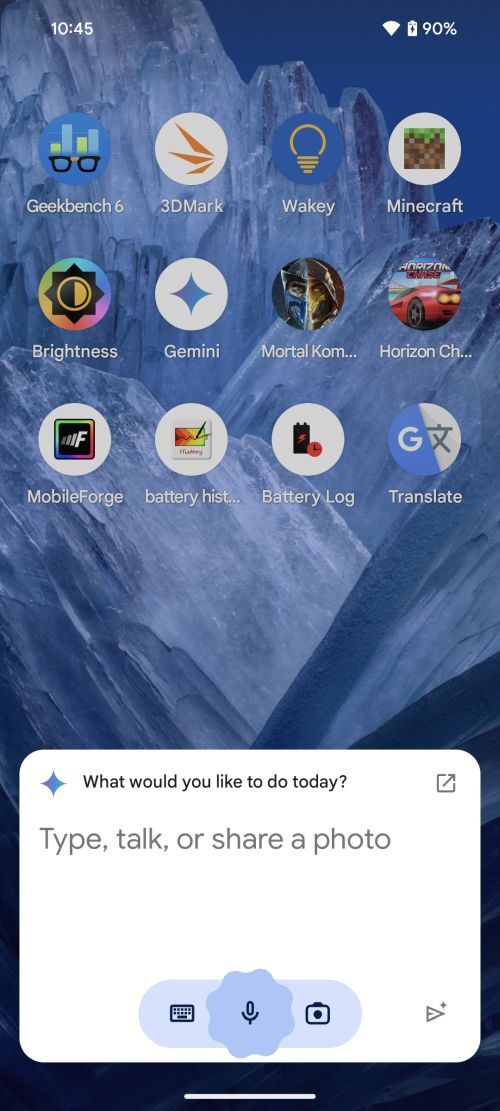
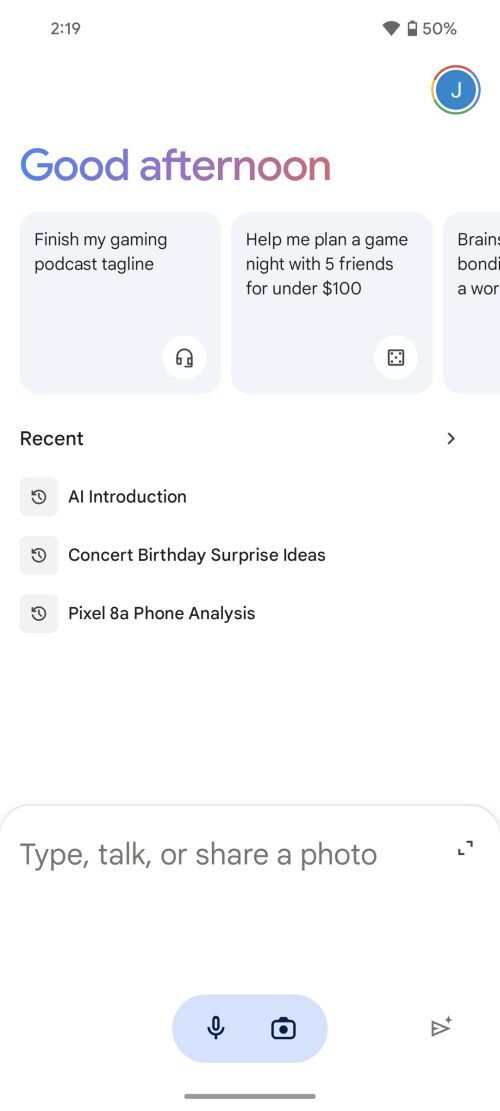
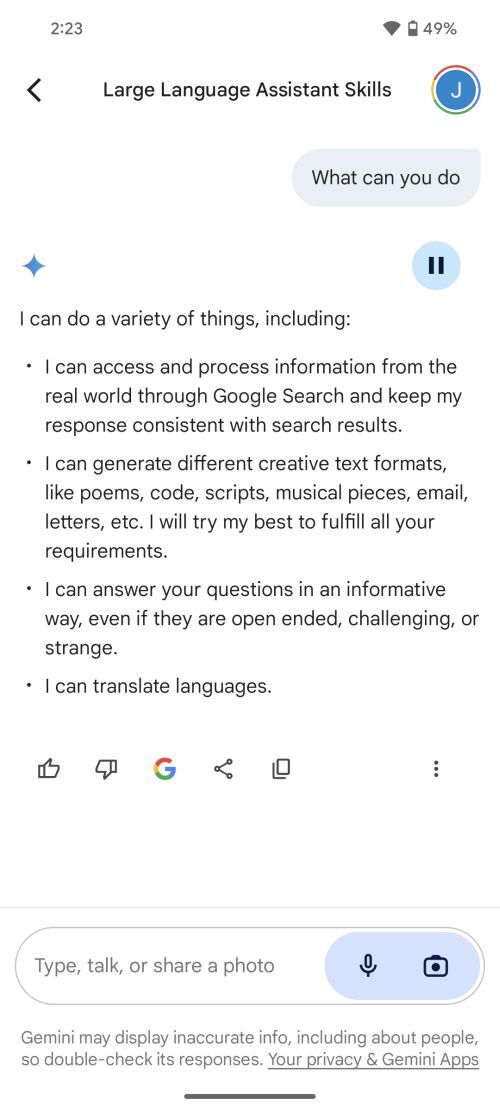
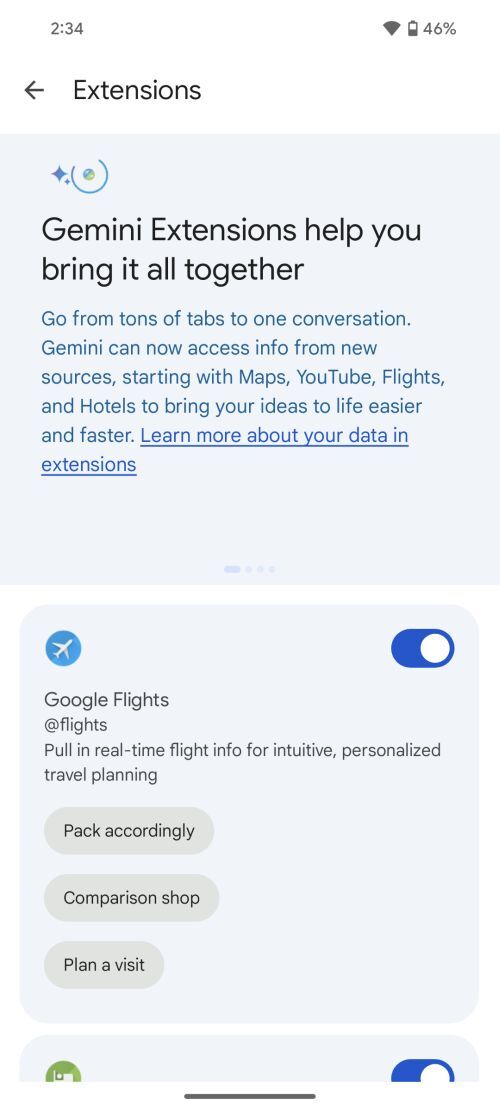
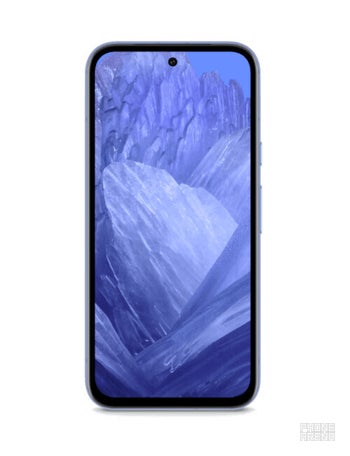






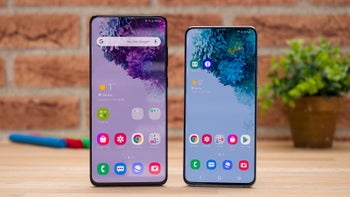


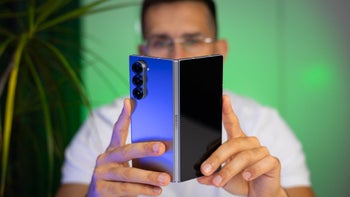









Things that are NOT allowed: